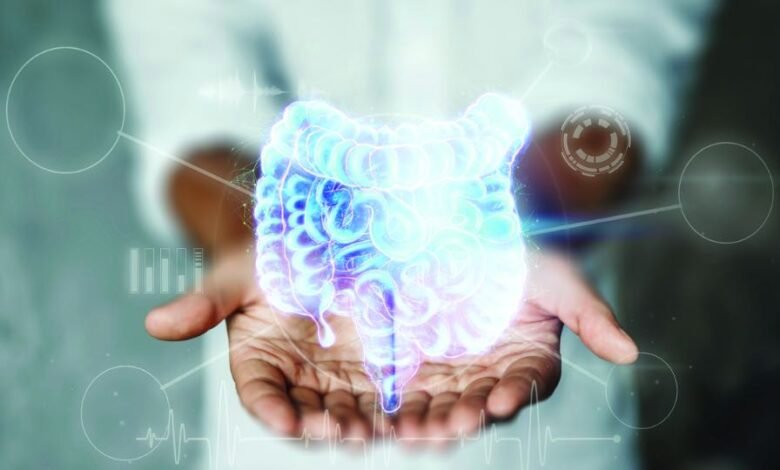Gut Health Myths Debunked: What Science Really Says

In recent times, intestinal health has gained interest. Now you can easily find endless recommendations about diets, supplements, or habits to look after it.
However, not everything that is said is true. In this space, you will learn about some of the most popular myths surrounding intestinal health and what science really says.
What is the Intestine?
The intestine is a fundamental structure of digestion and is divided into two sections: the small intestine and the large intestine. Its main function is to carry out digestion and the absorption of nutrients in the body.
The intestinal microbiota is also found in the intestine. This microbial community, made up of billions of microorganisms, contributes to digestion.
In addition, they also influence the immune system and even mental health. Therefore, having a healthy intestine is essential for the well-being of the entire body.
If you want to do more research and learn about your gut and its functions, don’t forget to install a VPN.
With this tool, you’ll get unrestricted access to information, and you’ll also be able to protect your data online!
See also: Healthy Potatoes Au Gratin: Lightened-Up Versions Without Sacrificing Flavor
Gut Health Myths Debunked
Below, you’ll learn about the most common gut health myths – and the truth behind each one:
1. “Detox products are effective”
Nowadays, it’s common to find products that are promoted as “detox.” Most of them claim to detoxify and/or cleanse the gut. However, the human body is already equipped for this with the liver and kidneys.
Essentially, there is no scientific evidence to support the claim that detox products have significant effects on gut cleansing. Some of these may even cause adverse effects, such as diarrhea or dehydration.
Long story short – you don’t need products to detox, your body does that for you already!
2. “Everyone should consume probiotics daily”
Probiotics are healthy in certain situations, like after a course of antibiotics or if you suffer from irritable bowel syndrome. However, not everyone needs to consume them.
Rather, if you want to have a healthy microbiota, you should try to follow a balanced, varied and fiber-rich diet, as well as food that naturally contains probiotics.
As for scientific evidence, there are studies that have managed to show that the effectiveness of probiotics may depend on the composition of each individual’s microbiome or their usual diet.
3. “Gluten is harmful to everyone”
Unless you suffer from celiac disease or have a sensitivity to the component, there is no evidence that removing gluten from the diet improves intestinal health. In fact, if you try to eliminate gluten unnecessarily, you could end up having nutritional deficiencies.
Whole grains that contain gluten, such as wheat, are important sources of fiber and other nutrients essential for digestive health. In addition, gluten-free industrial products are often rich in additives and added sugars, which are even more harmful to health.
4. “Eating a lot of fiber is good”
Fiber is good for intestinal health. However, if you consume too much or do not drink enough water, it can cause abdominal bloating. Some individuals who suffer from digestive disorders – such as irritable bowel syndrome – adjust their fiber intake to avoid symptoms.
It should be noted that not all fiber is the same. Soluble fiber has a regulatory function in intestinal transit and cholesterol.
Insoluble fiber, on the other hand, promotes intestinal transit and prevents constipation. It is important to find a balance in its consumption so that you can enjoy all the benefits.
5. “Laxatives are completely safe”
Natural laxatives, such as senna tea or aloe vera, can be used to treat occasional constipation. However, prolonged use could cause dependency and have adverse effects on bowel function.
Over time, laxatives can decrease the natural effectiveness of your intestine’s job, worsening constipation instead of eliminating it. Therefore, it is best to try to regulate your intestinal transit with a balanced diet and hydration rather than supplements.
Tips for Better Intestinal Health
To ensure good intestinal health, it’s crucial to follow healthy habits. Here are some of the most effective recommendations for your care:
- Follow a diet rich in fiber: Include fruits, vegetables, legumes, and wholegrains in your diet.They will help you improve your digestion and the diversity of your microbiome.
- Stay hydrated: Make sure you drink enough water to reach an optimal level of hydration. This will promote digestion and intestinal transit.
- Stay active: By engaging in physical activity, you stimulate your digestive system. This helps maintain a healthy intestinal transit.
Taking care of your gut health should not be taken lightly. This includes blindly following recommendations without first researching their effectiveness.
Science supports gut care through healthy eating, physical activity, and rest. Therefore, you should inform yourself before making any decision that could be harmful in the short or long term.




